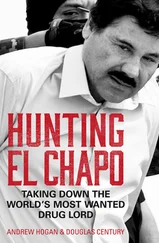On the home stretch Jon was so tired he fell asleep on his sled, and his team trotted right past the finish line in Bethel. Startled spectators and race officials scrambled after the snoozing racer, whose team continued on its own to the far side of town.
A year later, Terhune entered the Kusko a second time. He viewed it as a final Iditarod tune-up. Instead, the race almost ended his Iditarod hopes. For starters, it was too warm. The race had to be rerouted around open water, and the opening miles crossed tundra stripped of snow by the sun and the rain. Conditions worsened as the trail dropped down on a river. There, wet, slick ice threw Terhune’s dogs into a panic. Even worse, Daisy, a recently purchased young leader, was in front. Dandy, the musher’s favorite, most dependable lead dog, was running inside the team. It was a protective move: Terhune wanted to spare her from the pressure. But the strategy backfired tragically when Dandy fell on the slick ice. She dragged in a tangle of lines while Terhune battled to slow his runaway team. But he couldn’t plant his hook in the hard river ice. Afterward, he spent 20 minutes trying to revive poor Dandy. To no avail. His lead dog was dead.
Terhune scratched from the Kusko. His girlfriend, Dawn, hoped he had learned his lesson. She hoped he was ready to give up his Iditarod obsession. Dawn figured wrong. Though traumatized by Dandy’s loss, Terhune wasn’t accepting defeat. He chose to protect his team for the bigger challenge ahead. Three other dogs were hurt. If he didn’t quit, he wouldn’t have enough left to run the Iditarod. He’d invested far too much, endured too many nights on the trail preparing for the coming trip. And he owed it to Dandy to try. Drop out? Each setback further steeled Jon Terhune’s resolve.
In February, as he prepared to take his vacation, the machinist reminded his supervisor of the promised leave. The message was relayed upstairs, where the plant manager had changed his mind. Terhune’s leave was officially denied. He appealed through Unocal’s grievance committee, but the decision was upheld. Terhune was a ten-year employee. He sent the company a letter reminding them of the prior arrangement and reaffirming his intent to run the race.
Unocal officials responded by offering to extend the machinist’s vacation by a couple of days, but the request for unpaid leave was again denied. The machinist was ordered to report back to work the day before the Iditarod started. Terhune had a hunch they were calling his bluff, convinced that no one would walk away from a $50,000job.
“You want to know where I am?” he told his boss at Unocal. “Look in the fucking newspaper.”
On my visits home, I always put on a slide show for friends and family in Washington, D.C. After I moved to Alaska, those shows inevitably featured recent sled-dog races, conveying my growing appreciation for the sport. Over Christmas one year, my brother Coleman relayed a message from his father-in-law.
“If you want to run the Iditarod,” he said, “Mr. Brown told me to tell you not to let money stop you.”
Occasionally I’d daydreamed about entering the sled-dog races I covered for the newspaper, but I’d never given it serious thought. Certainly not the Iditarod. Did Brown realize that it would take the better part of a year to get ready? That it would cost at least $10,000? That I might not make it to Nome?
Coleman smiled, daring me to do it. “I think you ought to talk to him.”
For the hell of it, I worked up a budget and arranged to meet Brown at the Kennedy Center cafeteria for lunch.
A retired foreign service officer, Bazil Brown, 59, was a man of broad experience, sensitive to the fleeting adventure our lives represent, and haunted by a son’s death and his own bouts with emphysema. Reminders of mortality had led Brown to reflect on the experiences that had brought him the most satisfaction.
Aside from his family life, he told me over lunch, one of his most gratifying experiences resulted from a spontaneous decision he had made at a party, many years before. That night the young diplomat recklessly agreed to invest in a new play. It was called Sleuth , and it turned into a huge hit. The play was followed by a movie with the same name. By getting in on the ground floor, Brown reaped continuing financial rewards. His involvement also gave him a backstage introduction to the theater community, a world he would have otherwise missed.
Brown saw my possible entry in the Iditarod in a similar light. He told me he was prepared to put up $10,000 to make it happen.
I couldn’t accept the offer. Not yet. There was a lot to consider. I would be putting together a racing kennel from scratch, something that might easily cost closer to $15,000, possibly even $20,000. My life as a reporter was already hectic, involving weeks, sometimes months on the road. I had to decide if I was ready to commit to the months of training that would be necessary if I were to have even a chance of driving a dog team over mountains, rivers, sea ice, and God-knows-what-else I’d find on the trail to Nome.
I told Brown that I would let him know by July 1, the day Iditarod began accepting entries. If I decided to go forward, the $1,249 entry fee would come out of my own pocket, representing my personal commitment to raise any additional capital needed. Brown and I shook on it.
Riding back down the Kennedy Center escalator, I scanned the faces of people ascending toward the cafeteria. For all they knew about the Iditarod, I was headed for Mars.
I wouldn’t say that I’m superstitious. But I firmly believe in lucky streaks. Likewise, I believe that there are times when the odds are against you. Entering the final days of training, the omens took a disturbing turn, starting with my car.
My sporty VW Scirocco had never been much of a cold-weather car. I wasn’t surprised the morning the engine failed to turn over. It was 3 5 below, and I had already noticed that the wire to the oil-pan heat pad was beginning to fray. I had meant to fix it.
Living in interior Alaska, you take vehicular setbacks in stride. They are just one more front in nature’s eternal siege. I dug a trench under the engine and placed a small Hibachi charcoal stove in the snow, maybe a foot in front of the bumper. While I was waiting for the flames to give way to steady coals — so I could slide the hibachi under the engine — I draped a green military blanket over the Scirocco’s hood to help retain the heat. And I hooked a charger to the battery.
Warming an engine this way generally takes an hour. I was chopping meat, no more than a few yards away, when a breeze hastened the heating process. The flames lit the blanket. Then the fire spread from the Volkswagen’s plastic grill to the insides of my oily engine. I didn’t even hear a crackle until flames were licking around the edges of the wheel wells and grill.
“Tim, Tim, get up,” I yelled, dashing inside for our fire extinguisher. “My car’s on fire!”
Mowry slowly rolled over and sleepily glanced out his window. A thick column of black smoke was rising from my car.
“You aren’t kidding,” he said.
I popped the burning hood and pried it open with a shovel. With the inrush of air, a ball of flame leapt up six feet from the engine compartment. I pulled the pin on the fire extinguisher and squeezed the trigger. It spewed froth for a second, then fizzled.
Mowry came running out of the house in his long under wear and bunny boots. We were staring at the fire, paralyzed by the spectacle, when an unfamiliar truck rushed up the driveway. Two men jumped out, each clutching small fire extinguishers. “Saw the smoke.”
The men took aim at the flames, as I had minutes before, and with the same feeble result: foam dribbled out the end of their nozzles, then gurgled to a stop. Retardant gas doesn’t work in extreme cold.
Читать дальше












